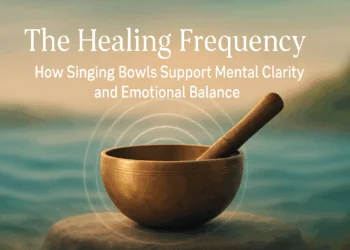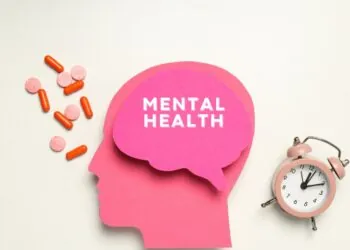Dual diagnosis is an essential but often overlooked part of mental health treatment. It is a term used to refer to an integrated approach that is used when a person is living with both a mental health disorder and a substance use disorder. Treating both conditions simultaneously is essential to ensure a successful recovery. However, many individuals go undiagnosed or receive care for only one issue. This leads to recurring struggles with addiction and mental illness.
What Is Dual Diagnosis?
Dual diagnosis is a term that is used to refer to a situation where an individual experiences both a mental health condition and a substance use issue. A proper diagnosis requires having a plan that treats both conditions simultaneously. Without this comprehensive approach being put in place, patients might find themselves stuck in a cycle of temporary recovery, but they would ultimately relapse. Dual diagnosis aims to ensure that the root causes of both conditions have been addressed and they have been treated with tailored methods such as therapy, medication, emotional support, and social support.
Common mental health conditions that are often diagnosed through dual diagnosis include anxiety disorder, depression, bipolar disorder, and severe mental illness. These are usually accompanied by substance abuse, including alcohol, cannabis, or other drugs.
Understanding Co-Occurring Disorders
Co-occurring disorders refer to the simultaneous presence of mental health and substance use disorders in a patient. These conditions, also known as co-occurring diagnoses, complicate each other. For example, someone suffering from psychiatric symptoms like paranoia or mood swings might turn to substance use to self-medicate, which is something that only worsens the underlying mental illness.
Understanding co-occurring conditions requires a comprehensive view of an individual’s mental and physical health. Factors such as genetics, environmental stressors, trauma history, and access to ongoing medical care all play a role. Early identification of co-occurring disorders can lead to more effective, evidence-based treatment and better long-term outcomes.
The Link Between Mental Health and Substance Use
Research shows that mental health and substance use are closely interlinked. Individuals dealing with mental health problems like anxiety and depression are more likely to use substance use as a coping mechanism. Conversely, substance use can lead to or worsen underlying psychiatric conditions.
This relationship forms a dangerous cycle where one condition intensifies the other. Untreated mental health disorders can lead to substance abuse, and ongoing drug use can lead to psychiatric disorders or worsen them. In many cases, both conditions share common risk factors such as trauma, family history, peer pressure, and exposure to risky behaviors.
Signs of Dual Diagnosis Patients
Dual-diagnosis patients exhibit a blend of behavioral and psychological symptoms. These might include sudden mood swings, difficulty in maintaining relationships, poor work or school performance, and physical signs of drug use. They may experience withdrawal symptoms, erratic behavior, or worsening psychiatric symptoms.

A clinical diagnosis by mental health professionals is crucial in ensuring that a dual diagnosis has been appropriately recognized. It ensures that both substance use disorder and mental health disorder are treated concurrently. This increases the likelihood of long-term recovery.
Behavioral Therapy and Coping Skills
Behavioral therapy is a key component of dual diagnosis treatment. It helps patients recognize the patterns that contribute to both mental health illness and substance use. Cognitive behavioral therapy (CBT) focuses on helping an individual develop healthy coping skills and adopt relapse prevention strategies.
Patients are also encouraged to build strong social support networks. This could involve therapy groups, support groups, or assistance from family members. Such support provides a structured and accountable approach during the whole recovery process.
Common Risk Factors and Early Intervention
Several risk factors increase the chances of dual diagnosis. This includes issues such as family history, early exposure to drugs, untreated trauma, or lack of emotional and social support. Recognizing these risks allows providers to begin treatment earlier, preventing the development of severe conditions.
Early intervention alongside a comprehensive treatment plan is essential. A well-structured treatment plan typically involves coordinated care between psychiatrists, addiction specialists, and other healthcare providers, ensuring the individual gets the needed help.
Bipolar Disorder and Other Psychiatric Conditions
Among those with dual diagnosis, bipolar disorder is one of the most frequently co-occurring mental health conditions. Mood swings, impulsive behavior, and episodes of mania or depression can lead individuals to self-medicate with alcohol as well as other drugs. Over time, this behavior not only complicates their psychiatric condition but also causes serious negative consequences in every area of a person’s life.

Other co-occurring psychiatric conditions include schizophrenia, PTSD, and anxiety disorders. Addressing these disorders with an integrated treatment approach is very necessary for healing.
Comprehensive Addiction Treatment Programs
Addiction treatment programs designed for dual-diagnosis patients must address both substance use and mental health. Effective programs combine medical detox, psychotherapy, group counseling, and medication management. The goal is not just abstinence but to help individuals maintain sobriety, improve their mental health function, and reengage with their lives.
These treatment programs often take place in a dual diagnosis treatment center, where specialized professionals understand how to treat mental health conditions simultaneously. Being treated by the same team ensures continuity of care, reducing the risk of falling through the cracks in the system.
The Future of Dual Diagnosis Treatment
Recovery from a dual diagnosis is not only possible, it’s essential. With the right integrated treatment approach, individuals can achieve long-term healing and reclaim their lives. Today, more treatment centers are recognizing the unique needs of those living with both mental health conditions and substance use disorders, offering specialized care that addresses both simultaneously.
By treating the whole person, not just isolated symptoms, clinicians can help individuals build a sustainable path to recovery. This holistic approach increases the chances of success and reduces the risk of relapse.
If you or someone you know is struggling with both a mental health disorder and substance use, don’t wait. Some addiction treatment centers in Riverside provide compassionate, personalized care using evidence-based practices tailored to dual diagnosis. With comprehensive support, you can find renewed strength, clarity, and hope for the future.












